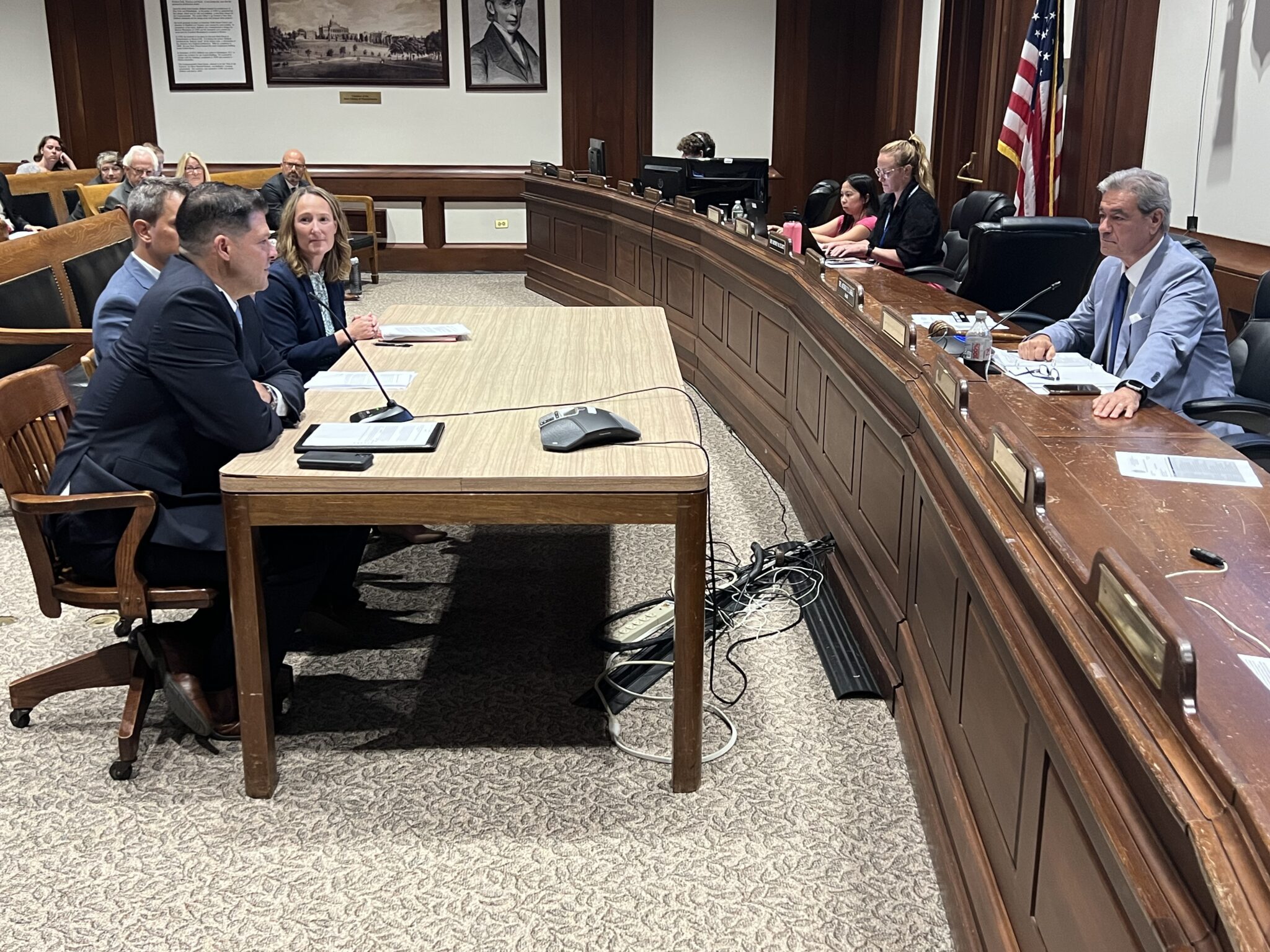Who is a member?
Our members are the local governments of Massachusetts and their elected and appointed leadership.

Ludlow Town Administrator Marc Strange, foreground left, testifies as part of an MMA panel on a number of bills related to remote and hybrid meeting options for public bodies during a July 26 hearing before the Joint Committee on State Administration and Regulatory Oversight at the State House. Also testifying on the MMA panel were MMA Legislative Analyst Ali DiMatteo and Acton Town Manager John Mangiaratti.
During a July 26 legislative hearing, the MMA and local officials from across the state called for the existing authorization for public body remote and hybrid meetings to be made permanent.
Testifying before the Joint Committee on State Administration and Regulatory Oversight, supporters discussed the success of remote and hybrid meetings in increasing access, engagement and transparency in local government, while stressing the need for local flexibility.
The MMA pointed out that municipalities have different fiscal, technological and physical space constraints that create different capabilities, needs and preferences when it comes to remote and hybrid meetings.
Acton Town Manager John Mangiaratti said his town has more than 50 boards and committees that appreciate the ability to use different formats.
Discussing Ludlow’s various meeting locations and technology capabilities, Town Administrator Marc Strange said, “It’s incredibly useful to be able to use all these formats.”
Local officials pushed back, however, on the idea of mandating hybrid meetings.
“A mandate would require a significant investment in technology and staffing within each of our communities that we may not be able to fund or properly staff,” said Adams Select Board Member Christine Hoyt, testifying virtually.
Stow Town Administrator Denise Dembkoski, president of Small Town Administrators of Massachusetts, discussed the difficulty that volunteer board members have in “triaging” hybrid meetings when trying to balance remote and in-person participants.
“We need flexibility so that volunteer members of our public bodies can make meeting format determinations based on their own capabilities as well as the public interest,” she said.
The MMA also submitted written testimony supporting S. 2043 and S. 2011/H. 3025, which would make the remote and hybrid options permanent, while opposing bills with mandate provisions.
The Joint Committee on State Administration and Regulatory Oversight will provide a recommendation on the bills.
The COVID-19 pandemic-related authorizations related to public meetings were most recently extended in March, allowing remote and hybrid meeting options for public bodies, remote and hybrid participation options for representative town meetings, and reduced quorums for open town meetings, all through March 31, 2025. Regarding representative town meetings, the definition of remote participation specifically includes hybrid participation.